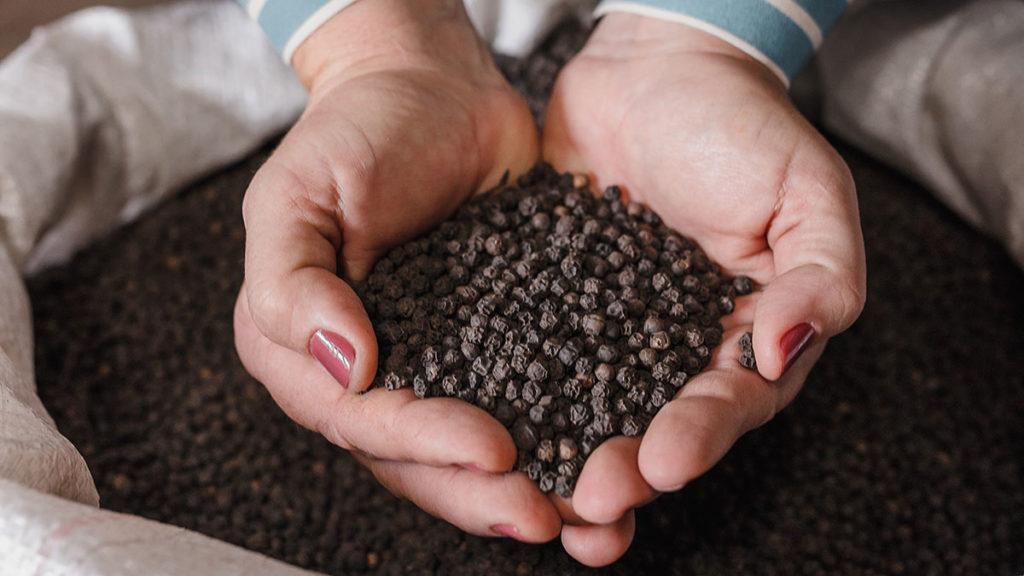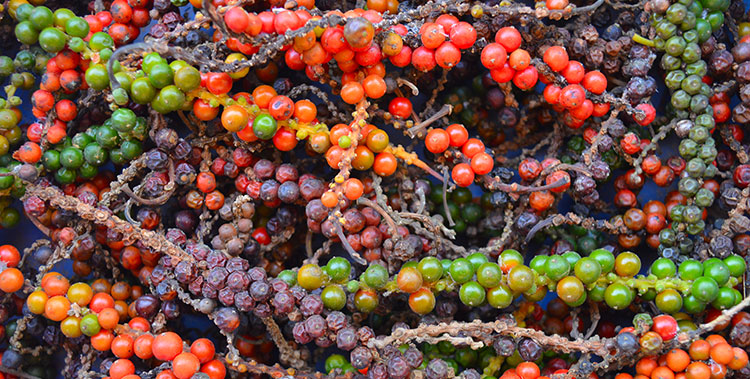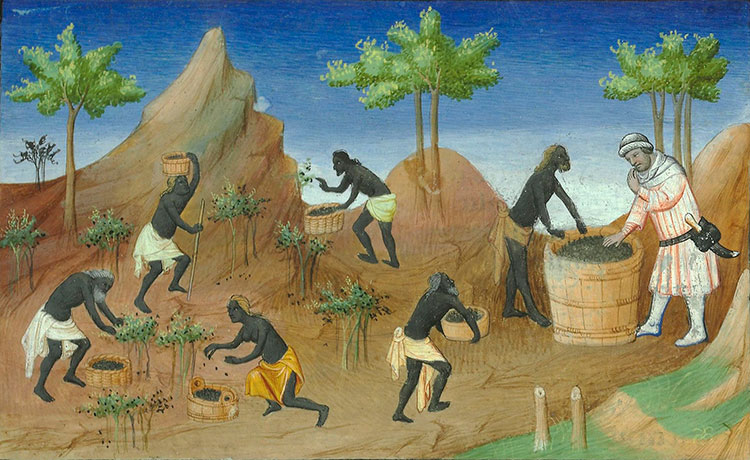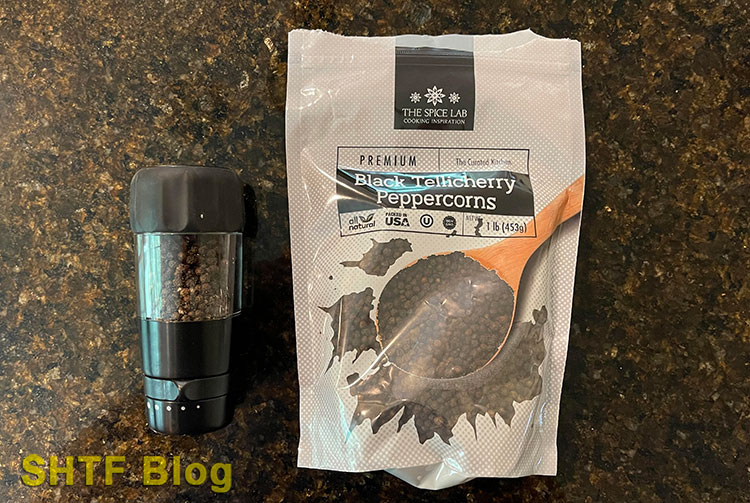
Pepper? Prepper? Call me a pepper prepper. Do you want to be a pepper prepper, too?
You’re in luck! In this article we’ll talk about storing pepper long-term. This way you’ll have plenty of fresh ground black pepper to spice up those gray squirrels you’re eating for dinner every night three years after the collapse.
The fact that you’re even looking to add spices like pepper to your food supply is a sign you’re advancing in your food storage efforts. Maybe you started with rice and beans, added some bulk survival food, and now you’re thinking ahead to a longer collapse. Good job!
How to make the food palatable for long periods of time is an often overlooked part of a prepper’s food storage plans. You may have done some calorie calculations, figuring you have X number of calories for Y number of days, but this useless if your body simply refuses to eat any more of the boring, flat rice and beans that has been your staple meal for months on end.
Spice it up!
Appetite fatigue is real, and when you can’t get what you need from the grocery store (a phenomenon that seems to be increasing even in normal times), you’ll need to improvise to make those post-collapse meals tasty, and what’s better for that than black pepper?
Pepper packs a lot of taste in little space at little cost. When paired with long-term storage of salt, you can stock enough food seasoning to last years, along with a powerful item for bartering for those who lacked your foresight!
Table of Contents
3 Reasons to Store Pepper
Pepper’s use dates back at least 3,000 years to its beginnings in India. According to World History, pepper was traded overland from India by the 2nd century BCE. It is mentioned in the histories of the Han Dynasty, Tang Dynasty, in Egypt, by the Romans, and on and on. It was a key component of Ayurvedic medicine.

Its popularity hit a peak in Europe by the Middle Ages when spices were used to season all types of foods. It was also passed around the banquet hall during meals.
1 – Flavoring
Pepper is the world’s most popular spice for a reason. There are few people who have not experienced the taste of pepper before and realized that it brings zest to otherwise dull foods. It makes good sense for any survivalist who cares about their long-term sanity to store pepper, and preferably other spices as well.
There are very few foods that, with a little bit of pepper, are not drastically improved. Imagine living at your bug out location where you raise livestock. Yes, meat on its own is nice, but even it needs some flavoring, and pepper is a great choice.
For a more basic example, nearly every single prepper has stored some form of carb, whether it be storing pasta, storing rice, or something else. Maybe they plan on growing potatoes. Whatever the case, eating those same carbs daily in the short-term is fine, but for a prolonged crisis, eating them so frequently would quickly get old. Add a dose of pepper, however, and they become food more palatable. This is true even when society is still intact.
2- Bartering
Let’s face it, if the collapse is bad enough, the economic system is all but guaranteed to collapse, leaving fiat currencies worthless. In its place, a bartering system will rise, and the people with the most desirable goods will have better odds of getting other goods and services they need.
People will undoubtedly become bored with their diets and look for something to enhance the survival gourmet experience from time to time. This is where you, the prepared person, becomes the SHTF businessman.

Spices will have a value that far exceeds their current worth after a collapse, giving you a great return. History offers a lesson here. Look no further than Europe a few hundred years ago. It was one of the earliest commodities to be traded in the world. To give a perspective on its value, 3,000 pounds of black pepper was demanded along with gold and silver to free Rome from the Huns.
3 – Health Benefits
In a survival situation, maintaining your health becomes of paramount importance. There is no point in having enough supplies stored to last a lifetime if you’re constantly plagued by illnesses from lack of vitamins and minerals. Like many spices, peppercorn has a plethora of health benefits.
According to Good Food, pepper has 5 specific health benefits:
- May reduce the risk of cataracts and macular degeneration
- May reduce the likelihood of aneamia
- May protect against certain chronic conditions
- May delay age-related memory loss
- May have blood-sugar lower effects
It can also improve your psychological health by boosting your diet. When most days post-SHTF become monotonous, devoid of the constant distractions present in modern society, the thought of consuming a tasteless meal becomes a massive mental drain. A simple spice can avoid this calamity, providing a morale boost that keeps the survival spirit constantly invigorated.
There’s another important use of black pepper that many people don’t know. Black pepper can help stop bleeding.
The availability of medical access and supplies is always compromised during a crisis. People need to know how to treat wounds where there is no doctor. Unconventional medicine can help, and black pepper’s ability to stop bleeding has saved lives.
How Long Does Pepper Last?
Surf the web for this answer and you’ll find very different answers. That’s because of a few reasons: 1) the type of pepper being stored matters, 2) the type of storage matters, and 3) how you define “last” matters. If you mean “last” as in “retain flavor,” that is different than “last” as in “goes bad.”
Peppercorns are said to last indefinitely, but they will begin to lose flavor over time even if properly stored. Black pepper does not expire, it just loses flavor.
I did a deep dive of different recommendations and answers and averaged the answers into the following table.
| Type of Black Pepper | Storage Temperature | General Shelf Life |
|---|---|---|
| Ground Pepper | room temp | Begins to lose potency after 4 months |
| Whole Peppercorns | room temp | Begins to lose potency after 4-5 years |
| Brined Peppercorns | refrigerated | Begins to lose potency after 1 month |
| Water-Packed Peppercorns | refrigerated | Begins to lose potency after 2 weeks |
Those are just guidelines, however. Suffice to say, that if peppercorns are stored properly, you can plan to have them for a very long time, and because they’re inexpensive, it would not break the bank to cycle them out every 5 years.
Storing Pepper Long-Term
The best way to store pepper long-term is to place peppercorns in airtight containers and store them in a cool, dry place.
Peppercorns stored this way have a shelf life of 3-4 years. They will never spoil, however. Ground pepper begins to lose its flavor after about 4 months. This is why you store peppercorns and not ground pepper.
- BLACK TELLICHERRY PEPPERCORN: Whether you’re looking for personalized gifts for the Pepper lovers in your life or you’re looking for delicious black tellicherry peppercorns, these will sure be a hit!
- QUALITY: This is one of the best superior quality Steam Sterilized black peppercorns on the market today and probably the last peppers you will need to ever try! Just check our reviews.
You can extend the shelf-life even further by incorporating oxygen absorbers with airtight containers. Like with many foods and spices (salt is an exception), the combination of Mylar bags and oxygen absorbers dramatically increases the shelf-life of foods. I would have no problem assuming a 10-year shelf life for peppercorns stored this way.
Get a pepper grinder!
Peppercorns aren’t going to be a lot of good on their own. They need to be ground. I suppose you could smash them up with a hammer and a rock and then try to scavenge the tiny pieces for use in a recipe, but…

You’re better off with a quality pepper grinder. In fact, you should be using one today, because peppercorns retain their flavor better. You’ll have better-tasting pepper everyday of the year if you replace your standard pepper shaker with a pepper grinder.
- Rotate tab to adjust Pepper Grinder setting from fine to coarse
- Non-corrosive ceramic Grinder won't absorb flavors or odors
The most hardcore of preppers might look at a pepper grinder and think, “moving parts.” I know I do. Moving parts = prone to breaking.
If you’re prepping for the long-term, and don’t want to rely on a functioning pepper grinder to give you spicy goodness, going old school with a mortar and pestle is the best option.
- A kitchen must-have: Mortar and pestle set (mortero de cocina - morter and pessel - molcajete or guacamole bowl and pestel) has been used for THOUSANDS of years as THE way to crush, grind and powder herbs and dry spices. Contrary to an electric grinder or crusher, the age-old, durable, traditional manual grinding method ensures that all cooking ingredients bring out their full flavor and aroma profiles, allowing you to further control their texture and make delicious, chunk-free dishes.
- Versatile tool: Take advantage of your brand new stone motar and pedestal set’s various applications in the kitchen and simplify your everyday life! Use your mortor to pulverize nuts, seeds, ginger root and garlic and make homemade salad dressing, sauces and condiments, such as fresh mustard, quacamole, pesto, salsa, chutneys and more. Widely used in pharmacies and apothecaries, your molcajete set will help you powder pills, for optimal ingestion, or hide them in your stubborn pet’s kibble!
The only moving part here is your hand. Life during a long-term collapse would look a lot like past, and mortar and pestles have been around for thousands of years. They can be used for more than just pepper!
Mylar Bags
Mylar bags are the preferred storage container among preppers. They are low-cost and easy to work with. You just need to couple them with some oxygen absorbers and seal them tight with a hot iron. The foil layer blocks out light and air while remaining flexible. The flexibility allows it to shrink tight when the oxygen is removed inside.
Because a little pepper goes a long way, it’s unnecessary to store significant quantities of it. For that reason, I would recommend smaller-sized Mylar bags, which can be purchased with the necessary number of oxygen absorbers in one package.
- [MYLAR BAGS FOR FOOD STORAGE] Food is not made to waste. Large Mylar bags with oxygen absorbers will store your food properly. Mylar bag is made of 3 layers of food grade materials: PET, aluminum foil, and PE. Resealable mylar bags are durable and heavy duty. Three sizes: Gallon, Quarter, 7 oz. Milar bags protects your food against oxygen, moisture and sunlight to ensure longer food storage life.
- [PACKAGE INCLUDES] 25 pcs 10 mil 1 Gallon mylar bags, 10"x14"; 35 pcs 8 mil 1 Quart myler bags, 6"x9"; 40 pcs 6 mil small mylar bags 4"x6". Bigger size needs thicker material. Mylar ziplock bags come with 100 300CC oxygen absorbers and 120 labels. 5 Oxygen absorbers were vacuum-sealed immediately after production. 5 per bag x 20 bags. Unused one will still be as effective as new for years.
For larger amounts, oxygen absorbers can be purchased in the following sizes:
The only downside to Mylar bags is that they are prone to ripping open if moved around a lot. For this reason, many people couple their Mylar bags with food-grade buckets. I do this as well. I seal the food I’m storing inside the Mylar bag with oxygen absorbers and then place that inside a food-grade bucket.
- Pack of 5 Buckets with Lids. Made in USA
- Food Grade Containers - BPA Free plastic
It might be overkill in some cases, but I know the food is thoroughly protected from light, air, accidental puncture – and rodents.
Mason Jars
Mason jars also work exceptionally well for storing pepper long-term. Their downsides? They don’t block light and they’re prone to breaking.
That can be okay, however, if you store the mason jars in a cool dark place on a stable shelf. Many people have these lying around unused already, so in that way they’re “free” storage containers.
- PACK CANNING JARS - 16 ounce jars perfect for canning, pickling, preserving, and fermenting fruits and veggies that can be canned and sealed for up to 18 Months. Embossed measurement markings for precise filling. Label line for writing dates and identifying contents.
- DURABLE GLASS CONSTRUCTION - Made in America soda-lime glass, USDA approved and,Toxin-free ensuring food grade quality. Heat-tempered durability for water bath canning, microwave and dishwasher safe; clear glass for easy visibility; wide mouth for easy filling and washing.
With a few jars, you have the capacity to store a lifetime’s supply very simply. You just have to ensure that the jar is completely airtight when you pack it, otherwise the quality of it will deteriorate very quickly.
Don’t forget the oxygen absorbers!
How Much Pepper Should You Store?
The amount you should store depends on a few factors: how many people you’re prepping for, what other spices you have, how much storage room you have, and if you are planning on bartering with the peppercorns after SHTF.
You would keep at least a years’ worth of pepper for you and your loved ones. If you can last a year after a collapse, you’ll be in great shape.
You can add extra for bartering, but this may not be a suitable option for everyone. Bartering also isn’t a viable option for some people, so ask yourself how likely you are to undertake this. When you have asked yourself these questions, you can then decide just how much pepper you will need after SHTF.
FAQs
Can you freeze black pepper?
You can freeze black pepper and peppercorns. Some even claim this can enhance pepper’s flavor. Freezing pepper is probably unnecessary for most storage purposes, however.
How do you know if pepper has gone bad?
While pepper cannot spoil, if it is stored improperly it can become wet, moldy, and take on a foul smell. If you suspect any of these are the case, throw your pepper out.
Summary
Peppercorns are an incredibly versatile survival food, providing a great source of flavor in a tiny package. Along with this, peppercorns also has an impressive shelf life with minimal effort to achieve this. Every prepper should become a pepper prepper. It is low-cost, easy to store, and lasts a very long time.






